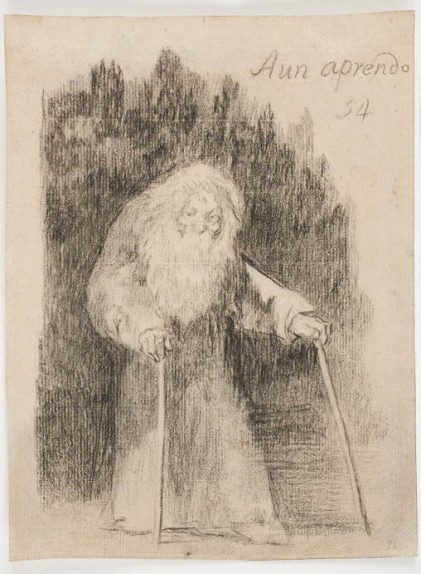
“Cela, n’importe qui pourrait le faire, mais les combinaisons que l’on pourrait former ainsi seraient en nombre infini, et le plus grand nombre serait absolument dépourvu d’intérêt. Inventer, cela consiste précisément à ne pas construire les combinaisons inutiles et à construire celles qui sont utiles et qui ne sont qu’une infime minorité. Inventer, c’est discerner, c’est choisir.”
Science et méthode J.H. Poincaré
If we substitute “inventer” with “apprendre” this sentence of Poincaré could be easily applied to organic learning. The major difference being that initially, without previous knowledge, a baby has no way to discern the useful from the useless combinations. She has only few instincts, pain and rewards to guide her exploration of the world. Her brain nervous system and body are constantly changing in a given environment. Her sensations and feelings will assist a development that is inevitable if no accidents occur. Myelination may not be complete before adolescence or even late adulthood, pruning, disappearance of certain reflexes will all happen independently of her actions.
Despite this continuous change of the body and brain landscape the baby will learn, discriminating actions allowing to align correctly her eyes from the ones who leads to blurry visions, actions who allow to reach the plastic bees dancing on her cradle from the ones who will send her hand to crash on the side of the cradle, and sometime an unintentional action will produce a rotation of the neck or of the torso; The consistence of the repeated accident will help to adjust the movement and the intention wiring neurons together in her unique individual way till an organized pattern will emerge.
Once the development is complete there is a lot of redundancy in the system and we can see that many adults when hit by stroke maintain many functions intact and can use those as basis for their recovery. In cerebral palsy, such organization had not the time to develop, so what happens if something went wrong at birth or during the gestation like in cerebral palsy?
Paul Doron Doroftei gives in his beautiful book several examples of living with such a condition. J.L. Borges description of the books on the shelves in “The Library of Babel” applies perfectly
“This much is already known: for every sensible line of straightforward statement, there are leagues of senseless cacophonies, verbal jumbles and incoherences. “
The Library of Babel, Jorge Luis Borges (1941)
Even in cases of modest damages, if learning is: “throwing away useless combinations… to find out sensible lines” the thousands of senseless cacophonies and incoherences, determined by an alteration of muscular tonus, makes neurons wiring completely chaotic. The normal development is completely altered and an external aid is necessary to extract order from such chaotic arrangement.
One of the most important aspect that Feldenkrais discovered is the ability to quieten the system, being able to redistribute and rebalance the muscular tonus. Only once this has been achieved movements can start to make sense again and correct wiring can take place.



